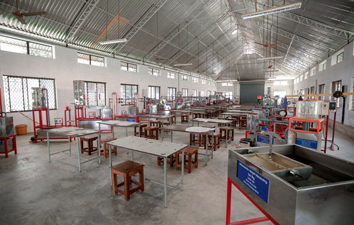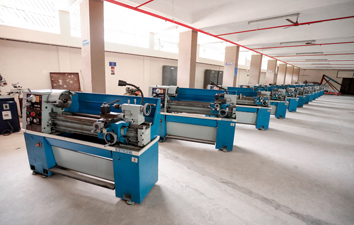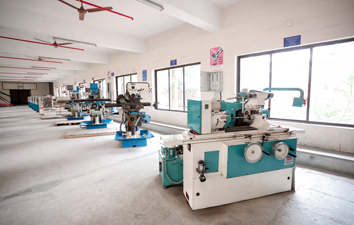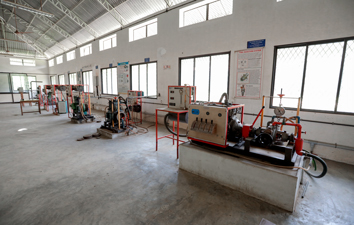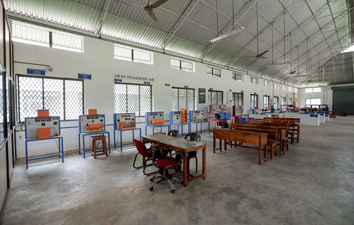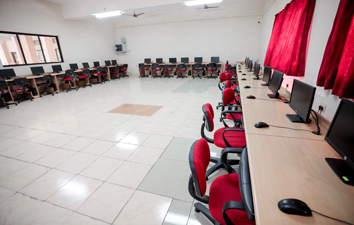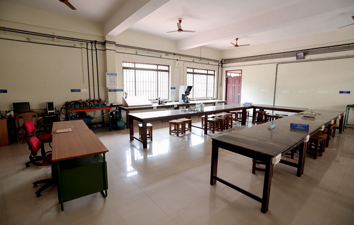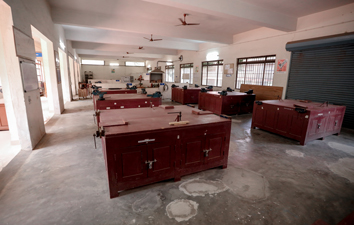 The first-year mechanical workshop at Mar Baselios Institute of Technology and Science (MBITS), Kothamangalam, provides an essential hands-on learning experience for students pursuing mechanical engineering. This workshop aims to introduce students to various fundamental concepts, tools, and techniques used in the field of mechanical engineering. Here is a description of what you can expect from the first-year mechanical workshop at MBITS:
The first-year mechanical workshop at Mar Baselios Institute of Technology and Science (MBITS), Kothamangalam, provides an essential hands-on learning experience for students pursuing mechanical engineering. This workshop aims to introduce students to various fundamental concepts, tools, and techniques used in the field of mechanical engineering. Here is a description of what you can expect from the first-year mechanical workshop at MBITS:
- Workshop Space: MBITS is equipped with a dedicated workshop space that houses all the necessary machinery, equipment, and tools required for practical sessions. The workshop is designed to provide a safe and conducive learning environment.
- Basic Tool Training: The workshop begins with basic tool training sessions, where students learn about different hand tools and their applications. They are taught how to handle tools safely and efficiently. This training helps students develop essential skills required for working in a workshop.
- Machine Shop Training: The workshop also includes machine shop training, where students learn about various machines used in manufacturing processes. They gain practical knowledge of operating machines like lathes, milling machines, drilling machines, and grinding machines. Students learn about the setup, operation, and safety precautions associated with each machine..
- Fabrication and Welding: The workshop offers hands-on training in fabrication and welding processes. Students get to work with metal sheets, tubes, and other materials to understand the principles and techniques of metal fabrication. They learn various welding techniques, such as arc welding and gas welding, and gain practical experience by working on small fabrication projects.
- Assembly and Disassembly: Another important aspect of the workshop is assembly and disassembly exercises. Students learn how to dismantle and reassemble mechanical components, such as engines, gearboxes, and pumps. This helps them understand the functioning of different parts and how they fit together to form a complete system.
- Safety Training: Throughout the workshop, safety is given utmost importance. Students are educated about safety practices and protocols to ensure their well-being while working in the workshop. They learn about the proper use of personal protective equipment (PPE), handling hazardous materials, and maintaining a clean and organized workspace.
- Project Work: Towards the end of the workshop, students typically engage in small project work to apply the knowledge and skills they have acquired. These projects may involve designing and fabricating simple mechanical systems or solving practical engineering problems.
Overall, the first-year mechanical workshop at MBITS provides a comprehensive foundation for students entering the field of mechanical engineering. It enables them to develop practical skills, gain hands-on experience, and understand the importance of safety in a workshop environment.








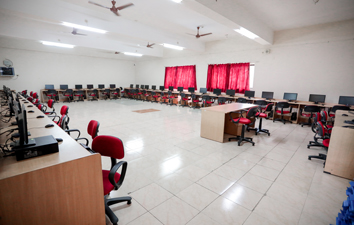
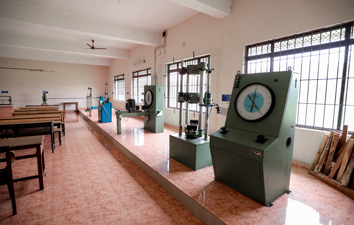 The Materials Testing Lab at Mar Baselios Institute of Technology and Science (MBITS), Kothamangalam, is a specialized facility that focuses on evaluating the mechanical properties and behavior of various materials. This lab provides students with hands-on training and practical experience in the field of materials testing and characterization. Here is a description of what you can expect from the Materials Testing Lab at MBITS:
The Materials Testing Lab at Mar Baselios Institute of Technology and Science (MBITS), Kothamangalam, is a specialized facility that focuses on evaluating the mechanical properties and behavior of various materials. This lab provides students with hands-on training and practical experience in the field of materials testing and characterization. Here is a description of what you can expect from the Materials Testing Lab at MBITS: